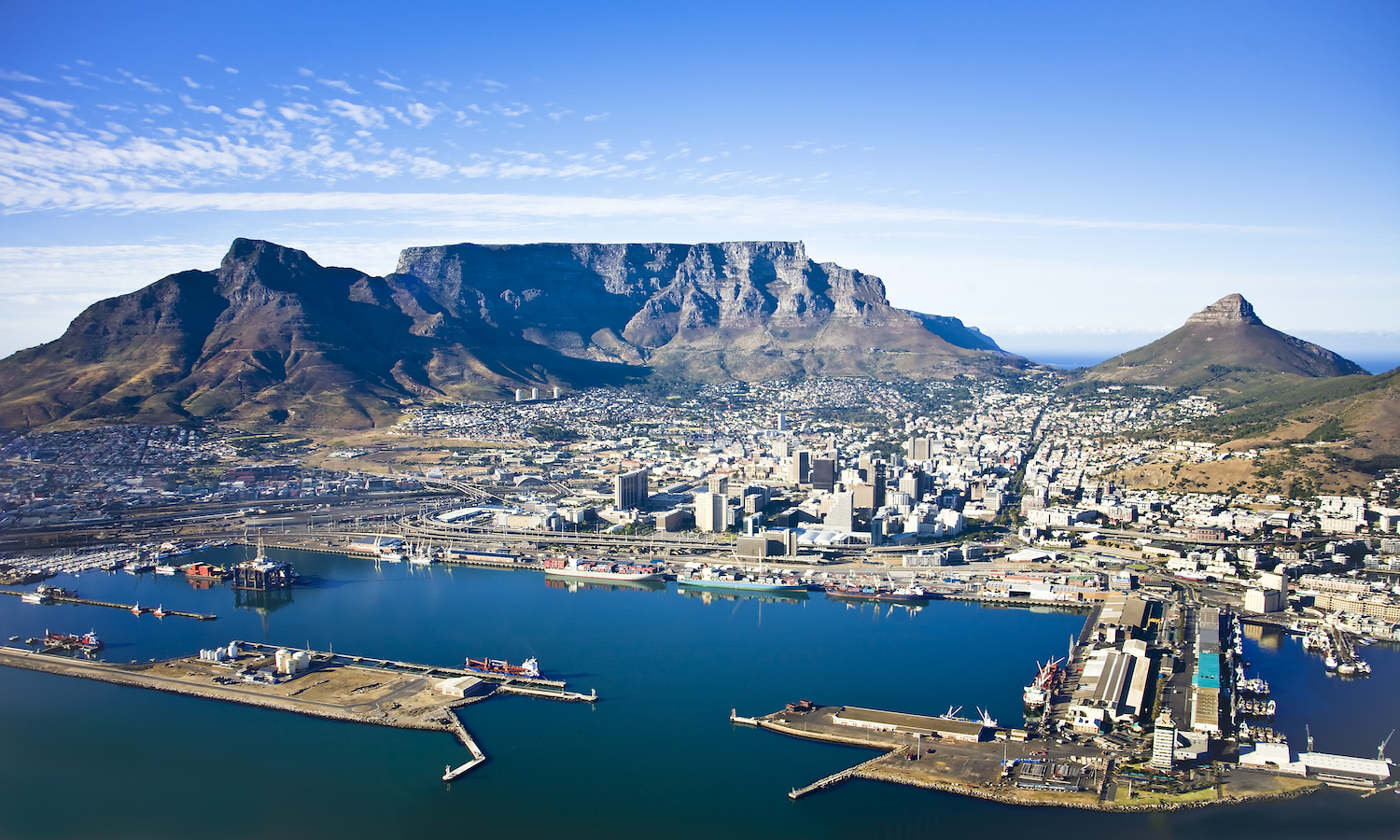DUBAI: The silence atop Table Mountain on a cloudless afternoon in December is an experience only the COVID-19 pandemic could have brought.
As one of the most popular hikes (or cable-car rides, if you’d prefer an easier climb) in Cape Town, the summit is usually thronging with people wielding selfie sticks and smartphones whatever the day, leaving you jostling for a decent view of the famed Twelve Apostles to the left, and the sweeping city and harbor to the right. But on this Friday evening we find ourselves alone except for our guide and a peppy rock hyrax for company.
Naturally, South Africa’s tourism capital is a different place during the pandemic. Like elsewhere in the world, it’s largely devoid of international travellers. This is bad news for the country’s tourism industry, but a positive point if you’re one of the few choosing to head abroad.

In Franschhoek, the picturesque valley filled with vineyards just north-east of Cape Town, a seat at one of the country’s premier restaurants has never been easier to come by. (Shutterstock)
The city’s top hotels are offering large discounts to entice travellers in. And Cape Town’s premier attractions — including its world-renowned restaurants — are easier to get into then ever.
South Africa opened its doors to tourists on November 1, but has since faced challenges in being perceived as a safe place to visit. In December, President Cyril Ramaphosa announced the country was in a second wave of infections, one that was crippling the hospital system. The South African variant of COVID-19 was also discovered. Flights into and out of the country were cancelled. Ramaphosa closed beaches and public parks and enforced a number of other restrictions in perceived hotspots — including Nelson Mandela Bay and the famous Garden Route. The move was another blow for the tourism industry there, which, after a tough lockdown period earlier in the year, was relying on the incoming flock of domestic tourists for the festive season.

If you’re staying at the One and Only Cape Town, seek out David. (Shutterstock)
Cape Town and the surrounding area escaped strict restrictions, however. Its beaches, as well as the sparkling white bays and the quirky towns dotted around Cape Peninsula (Hout Bay, Kalk Bay, Muizenberg etc) are humming with locals. It’s a relative hum, however, with only a few beachfront restaurants nearing capacity and a palpable air of uncertainty.
Wandering along Cape Town’s beachfront, you’ll be hard-pressed to hear a foreign accent. You can wander through Kirstenbosch Botanical Gardens and not see another face for long periods of time. On a hike up Table Mountain, you might only encounter a couple of other people on the same route. The uncrowded outdoors beckon.
Many of the hikes in the city (Lion’s Head is another must-do) seem easy enough, but are better attempted with a guide — both for safety and enjoyment. Most hotels will either have one on staff or will be able to arrange one for you. If you’re staying at the One and Only Cape Town, seek out David. He’s knowledgeable about hidden spots on the hike, as well as about the area’s fauna and flora, meaning your hike will be peppered with educational tidbits too.

Babylonstoren is arguably the region’s most popular spot. (Shutterstock)
One and Only Cape Town is a top choice if you’re looking to stay central — nestled in around the waterfront. Its affable army of staff positioned around the property at all times are vigilant about temperature checks and sanitization, and it’s a diverse enough hotel to mean you never have to leave if you’re nervous about mixing in crowds. A central island of resort-style rooms offer an escape to a tropical island in the middle of the city, surrounded by waterways where you can kayak or paddleboard.
The hotel is also home to Africa’s only Nobu restaurant. Given the freshness of the catch in this area of the world, it’s the perfect place to break up all your heavy game meals. Better yet, spend a rainy day trying a sushi masterclass and learn Nobu’s famous six-step nigiri method.

Given the freshness of the catch in this area of the world, it’s the perfect place to break up all your heavy game meals. (Shutterstock)
Best of all, the Western Cape’s world-famous restaurants don’t need to be booked months in advance at the moment. Even in the really touristy areas.
In Franschhoek, the picturesque valley filled with vineyards just north-east of Cape Town, a seat at one of the country’s premier restaurants has never been easier to come by. For instance, at Babylonstoren, arguably the region’s most popular spot, bookings for its restaurant Babel open nine months in advance, with its website recommending booking two or three months in advance. Now, you can book with less than 24-hours notice.
La Residence, Franschhoek’s most beautiful property (and a favorite of Sir Elton John), is a boutique option at the best of times, but now it seems almost as though it’s your own private mansion. The 30-acre estate is positioned on a hillock overlooking the village on one side and with lines of vines on the other, as emboldened peacocks wander around your room, and up to your table at breakfast time. One couple has booked in for 46 nights, which may be a bit much, but it’s hard to blame them, given the (relatively) bargain prices and lack of crowds.
If you’re willing and able to travel — and if the country’s borders are open again — this might be the best possible time to visit this dazzling city.







0 التعليقات:
إرسال تعليق